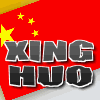1970年代後期一直到90年代初,杰克思一直擔任《今日馬克思主義》的主編。但共產主義在蘇聯東歐崩解後,這份英國共產黨理論刊物也隨之停刊。就像許多後蘇聯的左派知識份子一樣,杰克思也曾一度失魂落魄,喪失了觀察世界的座標。不過他在幾年前承認《今日馬克思主義》時期英國左派太專注於歐洲事務,以致忽略了世界其他地區。也許是這個原因,他把注意力轉移到亞洲,尤其是中國。他在中國、日本和新加坡講學,開始研究中國的興起。
杰克思認為中國未來會在亞洲重新建立歷史上的朝貢制度,這個制度有其階序,但總是以中國為核心,不過杰克思也稱,無法想像這將是什麼樣的國際體系。
此外,杰克思認為中國不是民族國家,而是個文明國家(civilization state),因為中國是建立在文明認同,而非國家認同之上。杰克思認為中文將成為未來的世界語言,如今日的英文;人民幣將取代美元成為世界貨幣;而中國娛樂產業也將把中國電影推廣到世界每個角落。歐洲人的後代將會熟悉中國的歷史,如同今天世界各地的學生都知道羅馬帝國、法國革命、工業革命一樣。
杰克思在討論中國崛起時充滿了想像,許多論點令人難以苟同。但是他博學多聞,態度認真,出版的《當中國統治世界》(When China Rules the World)旁徵博引,又讓人不能不嚴肅以待。英國人已經開始在熱烈辯論杰克思的觀點,而且辯論之火可能延燒到包括亞洲在內的其他地區。
當全世界都在思索中國興起的意義時,杰克思著作的出現正好成了正反意見集中的靶的。正由於這本書既嚴肅,又不受學術規範拘束;既尊重事實,又充滿狂野的推論,才能引發廣泛的興趣。有些著作不在傳世,旨在引發討論。如果杰克思的目的僅及於此,那麼他算是成功了。
台灣也在進行有關中國的大辯論,辯的是ECFA、中國學歷、中資來台,但缺少的正是杰克思這樣具有高度深度的標靶,台灣人似乎也可以思考中國朝貢關係和台灣的關聯性,「儒家共產黨」演化的可能,以及中國究竟是文明國家還是由文明國家極力模仿西方而演變成民族國家的典型。美國的謝淑麗教授在出版《脆弱的強權》後獲得台灣讀者許多正反不一的廣大迴響,但是台灣自己的謝淑麗在哪裡?同樣的,台灣的杰克思又在哪裡?
作者為《蘋果日報》社長
=============================
不用傑克斯,有登公與鼎公就可以了!
又,新政治家(New Statesman)有一篇專文介紹本書,算是稱讚比較多的http://www.newstatesman.com/2009/06/western-world-china-state;
Reviewed by John Gray - 18 June 2009
The witless, end-of-history triumphalism that shaped western attitudes in the post-Cold War era is nowhere more misplaced than in regard to China. History is on the move again – and it is not the delusional, teleological, self-congratulating history dreamt up by liberal rationalists, which somehow always ends with themselves as the winners. The rise of China is the real thing, a world-changing event that marks the end of western hegemony.
不過另有一篇文章,在泰晤士報,則認為這本書基礎事實錯誤太多,因此抱持批判為主。http://entertainment.timesonline.co.uk/tol/arts_and_entertainment/books/non-fiction/article6522254.ece
There is something curiously old-fashioned about Jacques’s writing, redolent of German thinkers between the world wars talking about national character and all that. One problem with this cultural approach to economic and political affairs is that currently received opinions — in this case, Chinese elite opinions — are given the status of an unchanging mentality, rooted in thousands of years of history. It would follow from this, for example, that China is not ready for democratic institutions, because they have not existed before, or because China is too big, too complex or too Confucian.
This is what many Chinese officials and businessmen will tell the foreign observer, and Jacques faithfully repeats their clichés. Alas, for a writer who takes history and culture so seriously, he is rather badly informed on these matters, something he has in common with many Chinese government hacks who bamboozle themselves and foreigners with proud talk about “5,000 years of history”.
Confucius looms large in Jacques’s account. He thinks that the first centralised Chinese state, the Qin (221-206BC), was based on his teachings. In fact, the Qin emperor, a legalist, detested Confucianism, had Confucian scholars buried alive, and burned their books. Chinese Confucianism, Jacques believes, was “more doctrinaire” than the Korean and Japanese versions, which explains why democracy is more alien to China. Actually, it is the other way round: doctrinaire neo-Confucianism really took off in Korea and Japan. The Chinese communists “played the key role” in resisting Japan during the second world war. Wrong, it was the nationalists who ended up doing most of the fighting, while the communists bided their time in remote rural areas.
And so on, into our own times. One of the few mentions of the “Tiananmen massacre” suggests that the protest was confined to the square in Beijing, and “had surprisingly little impact on the country as a whole”. Actually, there were huge demonstrations and subsequent killings in every main city in China. Since Jacques deals with mentalities, and not politics, the reader is never much informed on what the protests were all about.
These errors would be less annoying if Jacques made less of a point of sneering at “western” ignorance. A more serious consequence of his focus on race and history is that it is unable to explain change. How did South Korea, perhaps the most Confucian society in East Asia, manage its transition to a vibrant democracy? What about Japan? Or Taiwan? Japan’s Meiji restoration (1867) was not a “coup by the elite”, as Jacques believes, but a revolt against the Edo shogunate by provincial samurai, which prepared the way for a flawed but functioning democracy, briefly in the 1920s, and less briefly since the war.


 本城市首頁
本城市首頁



























